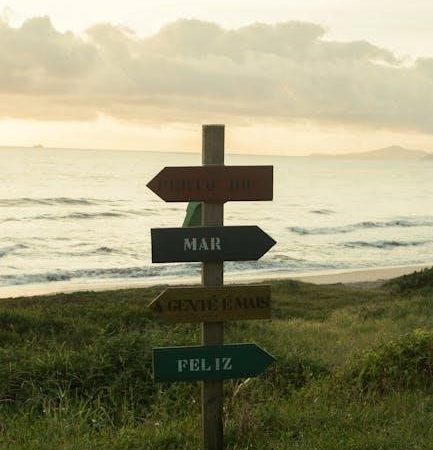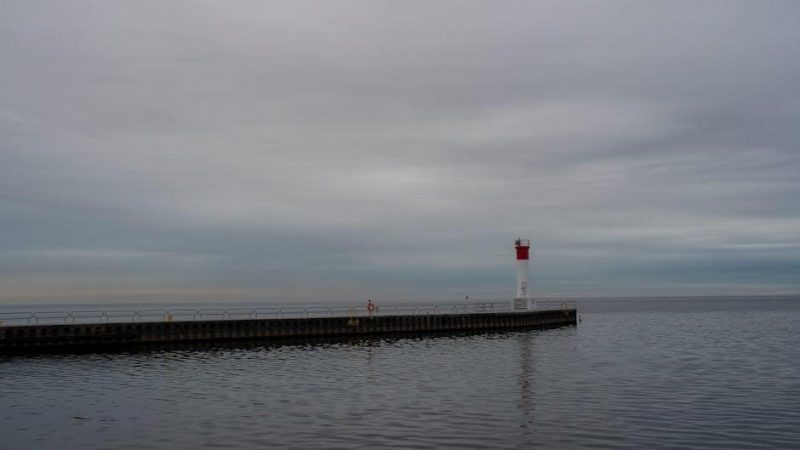lebanon guide
Lebanon, a country with a rich history and cultural diversity, offers a unique blend of ancient traditions and modern vibrancy. Known for its stunning natural beauty, from mountains to coastlines, Lebanon captivates visitors with its historical sites, vibrant cities, and warm hospitality. A fascinating destination for travelers seeking cultural immersion and unforgettable experiences.
With its strategic location at the crossroads of the Mediterranean, Lebanon has been a melting pot of civilizations, leaving behind a legacy of historical treasures. From bustling Beirut to serene landscapes, Lebanon promises an inspiring journey through time and nature.
1.1 Overview of Lebanon’s Geography and Climate
Lebanon is a small, diverse country located in the Middle East, bordered by Syria to the east and north, Israel to the south, and the Mediterranean Sea to the west. Its geography features a narrow coastal plain, the Lebanon Mountains, and the Bekaa Valley. The climate varies from Mediterranean along the coast, with warm summers and mild winters, to cooler, snowy conditions in the mountains. This unique geography creates a wide range of ecosystems and microclimates, making Lebanon a fascinating destination for nature lovers.
The country’s terrain is characterized by rugged mountains, fertile valleys, and scenic coastlines, offering breathtaking landscapes and natural beauty. Lebanon’s climate supports lush forests, vineyards, and agricultural lands, contributing to its rich biodiversity and picturesque scenery.
1.2 Brief History and Cultural Significance
Lebanon’s rich history dates back thousands of years, with ancient civilizations like the Phoenicians, Romans, and Ottomans leaving a lasting legacy. Its strategic location made it a crossroads of cultures, blending Islamic and Christian influences. The country’s cultural significance is evident in its UNESCO World Heritage Sites, vibrant arts, and diverse traditions. Lebanon’s resilience and vibrant culture continue to captivate visitors, offering a unique blend of history, faith, and modern life in the heart of the Middle East.
From ancient ruins to bustling cities, Lebanon’s cultural tapestry reflects its dynamic past and present, making it a fascinating destination for history enthusiasts and culture lovers alike.
1.3 Why Visit Lebanon?
Lebanon offers a unique blend of history, culture, and natural beauty, making it a must-visit destination. Explore ancient ruins, vibrant cities, and stunning landscapes, from Mediterranean beaches to snow-capped mountains. Experience the warm hospitality, savor delicious Lebanese cuisine, and immerse yourself in a rich cultural heritage. Whether you’re interested in history, adventure, or relaxation, Lebanon provides unforgettable experiences that cater to all interests and leave lasting memories.
Discover a country where ancient traditions meet modern vibrancy, creating a truly captivating travel experience.
Best Time to Visit Lebanon
Lebanon’s best visiting seasons are spring (April-May) and autumn (September-October), offering mild weather ideal for exploring historical sites, natural beauty, and vibrant culture.
2.1 Lebanon’s Tourist Season
Lebanon’s tourist season peaks in spring (April-May) and autumn (September-October), with mild temperatures and vibrant festivals. Summer attracts beachgoers, while winter offers skiing in mountain resorts. These periods are ideal for exploring historical sites, enjoying outdoor activities, and experiencing local culture. The seasons are well-suited for both adventure seekers and those looking to relax, making Lebanon a year-round destination with diverse attractions.
2.2 Weather Conditions Throughout the Year
Lebanon experiences a Mediterranean climate, with warm, dry summers and cool, wet winters. Spring (March-May) and autumn (September-November) offer mild temperatures, ideal for exploration. Summers are hot and humid, especially in coastal areas, while winters bring cooler weather, with snowfall in mountain regions. The Beqaa Valley often sees colder conditions, while coastal cities remain relatively temperate. Weather variations create diverse experiences, from beach days to mountain retreats, making Lebanon’s climate suitable for year-round travel.
2.3 Seasonal Activities and Festivals
Lebanon offers a vibrant array of seasonal activities and festivals. Summer highlights include the Baalbek International Festival, showcasing music and theater amidst ancient ruins, and the Byblos International Festival, featuring global artists. Winter brings skiing and snowboarding in mountain resorts like Faraya and Mzaar. Spring and autumn are perfect for hiking and exploring nature reserves. Cultural events, such as the Batroun International Festival, celebrate local music, food, and traditions, making every season a unique opportunity to experience Lebanon’s rich heritage and lively spirit.
Major Cities in Lebanon
Lebanon’s major cities include Beirut, the vibrant capital blending history and modernity; Tripoli, rich in cultural heritage; Sidon, with its historical landmarks; and Tyre, a coastal gem. Byblos, a UNESCO World Heritage Site, offers ancient charm and modern allure, while cities like Jounieh and Zahlé showcase Lebanon’s diverse landscapes and traditions, making each city a unique destination for exploration and discovery.
3.1 Beirut: The Capital City
Beirut, Lebanon’s vibrant capital, seamlessly blends history and modernity. Known for its cultural richness, the city boasts landmarks like the National Museum and Sursock Museum. The Corniche, a scenic waterfront, offers stunning Mediterranean views, while neighborhoods like Gemmayzeh and Mar Mikhael are hubs for dining, nightlife, and art. Beirut’s energy is palpable, with a mix of ancient ruins, bustling markets, and contemporary lifestyle. Guided tours are highly recommended to explore its hidden gems and understand its complex history. A must-visit for any Lebanon traveler.
3.2 Tripoli: A Glimpse into the Past
Tripoli, Lebanon’s second-largest city, is a treasure trove of history and culture. Known for its well-preserved Mamluk architecture, the city features landmarks like the Tripoli Castle and the Great Mosque. Visitors can explore the vibrant souks, where traditional crafts and local delicacies await. The city’s conservative atmosphere offers a unique glimpse into Lebanon’s past, with guided tours highly recommended to uncover its hidden gems and cultural significance. A must-visit for history enthusiasts and those seeking authentic experiences.
3.3 Sidon: Historical and Cultural Landmarks
Sidon, a city steeped in history, boasts ancient ruins like the Crusader Castle and the Temple of Eshmun, showcasing its Phoenician and Roman heritage. The old souks offer a glimpse into traditional Lebanese life, while the Great Mosque highlights its Islamic influence. Sidon’s historical significance and vibrant culture make it a must-visit destination for history enthusiasts and travelers seeking authentic cultural experiences.
From its ancient harbor to its bustling markets, Sidon blends history with modernity, offering a unique perspective on Lebanon’s diverse past and present. A city where the echoes of civilizations past meet the vibrancy of today, Sidon is a cultural gem waiting to be explored.
Planning Your Trip
Hiring guides or joining tours is highly recommended due to Lebanon’s chaotic public transport and limited signage. Use USD or credit cards in major areas for convenience.
Buy a SIM card for better navigation and consider ride-sharing apps like Uber or Bolt. Prioritize responsible tourism to support local businesses and communities effectively.
4.1 Travel Health Risks and Precautions
Travelers to Lebanon should be aware of health risks such as hepatitis A, typhoid, and rabies. Precautions include ensuring up-to-date vaccinations and avoiding undercooked food. Safe eating habits are crucial to prevent waterborne illnesses.
Drink bottled water and avoid ice cubes. Medical facilities are adequate in cities but limited in rural areas. Travel insurance covering medical evacuation is recommended. Consult a healthcare provider before your trip.
4.2 Public Holidays and Their Impact on Travel
Lebanon observes various public holidays, including religious and national celebrations, which can affect travel plans; Key holidays include Eid al-Fitr, Christmas, and Independence Day. During these times, public services, historical sites, and transportation may operate on reduced schedules or close entirely. Travelers should check local calendars and plan accordingly to avoid disruptions. Additionally, festivals and events may attract large crowds, impacting accommodation availability and prices. Staying informed and flexible is essential for a smooth journey.
4.3 Essential Travel Documents and Entry Requirements
Travelers to Lebanon must carry a valid passport, with at least six months’ validity. Citizens of certain countries require a visa, which can often be obtained upon arrival. Ensure all documents, including health certificates, are up to date. Nationals of specific countries may face additional entry requirements or restrictions. It’s advisable to check with the Lebanese embassy or consulate for the latest visa policies and entry regulations before planning your trip to avoid any complications.
Additionally, having travel insurance is recommended to cover unexpected medical or travel-related issues during your stay in Lebanon.
Safety and Travel Advisory
Lebanon has a Level 4 “Do Not Travel” advisory due to crime, armed conflict, and kidnapping risks. Exercise extreme caution, especially near borders and sensitive areas.
Stay informed about local conditions and follow official guidelines to ensure a safe journey.
5.1 Current Travel Warnings and Advisories
Lebanon currently holds a Level 4 “Do Not Travel” advisory due to heightened risks of crime, armed conflict, and kidnapping. The U.S. Department of State strongly advises against visiting areas near the Syrian border and sensitive regions like the Beqaa Valley, where security conditions are unstable. Tensions in the Middle East continue to impact travel safety, with ongoing concerns about regional instability and potential violence.
Travelers are urged to exercise extreme caution, stay informed about local conditions, and follow official guidelines to minimize risks during their visit.
5.2 Safe Areas to Visit
Beirut, Lebanon’s capital, is generally considered safe for tourists, with vibrant neighborhoods like Gemmayzeh and Achrafieh offering cultural and dining experiences. Coastal cities such as Jounieh and Byblos are also popular and secure destinations. The historic cities of Tripoli and Sidon are safe to visit, though visitors should remain aware of their surroundings. Avoid areas near the Syrian border and the Beqaa Valley due to heightened security risks. Stick to well-known tourist spots and cities for a safer experience.
5.3 Tips for Staying Safe in Lebanon
To ensure a safe trip, hire reputable guides or join tours, especially when visiting conservative areas like Tripoli or the Beqaa Valley. Stay informed about local conditions and avoid discussing sensitive political topics. Use trusted transportation services like Uber or Bolt, and carry a local SIM card for emergencies. Respect cultural norms, especially in religious sites. Avoid traveling near the Syrian border and keep valuables secure in crowded areas. Stay vigilant and follow local advice to enjoy a trouble-free experience.
Things to Do in Lebanon
Discover Lebanon’s rich history, stunning landscapes, and vibrant culture. Explore ancient ruins, enjoy beaches and mountains, and experience thrilling adventures like surfing and kite surfing. Immerse yourself in local traditions and festivals for an unforgettable journey.
6.1 Historical Sites and Ruins
Lebanon is a treasure trove of ancient history, with numerous historical sites and ruins that showcase its rich cultural heritage. Visit the majestic Roman ruins of Baalbek, a UNESCO World Heritage Site, featuring towering temples like Jupiter and Bacchus; Explore the ancient city of Byblos, with its well-preserved ruins dating back millennia. The city of Tyre, another UNESCO site, boasts impressive Roman and Byzantine remains. These sites offer a glimpse into Lebanon’s storied past, blending Roman, Phoenician, and other civilizations that once flourished here.
From the crusader castles in Sidon to the historic mosques and churches, Lebanon’s historical sites reflect its diverse and complex history. Each ruin tells a story of conquest, coexistence, and cultural exchange, making them a must-visit for history enthusiasts and travelers alike.
6.2 Natural Beauty: Beaches, Mountains, and Valleys
Lebanon’s diverse landscape captivates visitors with its stunning natural beauty. The Lebanon Mountains offer breathtaking views, perfect for hiking and skiing, while the Mediterranean coastline boasts pristine beaches like those in Byblos and Tyre. The fertile Beqaa Valley, known for its vineyards, and the scenic valleys of the north provide serene escapes. This unique blend of mountains, coastlines, and valleys makes Lebanon a paradise for nature lovers and outdoor enthusiasts seeking unforgettable experiences.
The country’s rugged terrain and lush landscapes create a picturesque setting, inviting exploration and admiration of its unspoiled charm.
6.3 Adventure Activities: Surfing, Kite Surfing, and More
Lebanon offers a variety of thrilling adventure activities for all enthusiasts. Surfing and kite surfing are popular along the Mediterranean coast, with spots like the beaches between Beirut and Byblos attracting water sports lovers. The southern coast, particularly near Tyre, is ideal for kite surfing due to consistent winds. Beyond water activities, Lebanon’s rugged terrain invites hiking, paragliding, and rafting, making it a haven for adventure seekers looking to explore its diverse landscapes and experience adrenaline-pumping excitement.
Whether on land or sea, Lebanon’s natural beauty provides endless opportunities for outdoor adventures, catering to all skill levels and interests.
6.4 Cultural Experiences and Local Traditions
Lebanon’s cultural richness offers a vibrant tapestry of traditions and experiences. From lively festivals to ancient customs, visitors can immerse themselves in the local way of life. Explore bustling souks, where artisans showcase handmade crafts, and savor authentic Lebanese cuisine in family-run restaurants. Attend a traditional dabke dance performance or participate in a local wine-tasting event. The country’s diverse heritage, blending Arab, Mediterranean, and Phoenician influences, creates a unique cultural journey that captivates the senses and enriches the soul.
Engaging with locals and respecting customs enhances the cultural experience, fostering meaningful connections and unforgettable memories.
Religious and Spiritual Sites
Lebanon is a land of spiritual diversity, home to ancient mosques, historic churches, and synagogues, reflecting its rich multicultural heritage. Visitors can explore sacred sites, experiencing the coexistence of faiths and traditions that define the nation’s identity.
7.1 Mosques and Islamic Heritage
Lebanon’s Islamic heritage is evident in its stunning mosques, blending architectural grandeur with spiritual significance. The Mohammad Al-Amin Mosque in Beirut, with its towering minarets and blue dome, stands as a modern masterpiece. Historical sites like the Al-Omari Mosque in Sidon showcase Ottoman influences, while the Al-Tahera Church in Tripoli highlights the country’s religious coexistence. These landmarks not only serve as places of worship but also as cultural symbols, reflecting Lebanon’s diverse and harmonious spiritual landscape.
7.2 Churches and Christian Pilgrimage Sites
Lebanon’s Christian heritage is deeply rooted in its history, with numerous churches and pilgrimage sites attracting visitors worldwide. The Valley of Saints, home to ancient monasteries, and the Monastery of Saint Anthony in Qozhaya, are serene retreats for spiritual reflection. The Cathedral of Saint Elias in Beirut and the Church of St. Paul in Byblos stand as testaments to Lebanon’s rich Christian legacy, offering a glimpse into its diverse religious tapestry and cultural significance.
7.3 Synagogues and Jewish Heritage
Lebanon’s Jewish heritage is a lesser-known yet significant part of its cultural mosaic. The Maghen Abraham Synagogue in Beirut, once a vibrant hub for the Jewish community, now stands as a historical reminder of Lebanon’s diverse past. While the Jewish population has dwindled, these sites remain important landmarks, reflecting the country’s multicultural history and the coexistence of religions that once thrived here.
Lebanese Cuisine
Lebanese cuisine is a vibrant blend of Mediterranean flavors, featuring dishes like hummus, tabouleh, and shawarma. Renowned for its wine and rich dining experiences, it captivates global palates.
8.1 Popular Dishes and Local Specialties
Lebanese cuisine is renowned for its flavorful dishes, blending Mediterranean herbs and spices. Popular specialties include hummus, a creamy chickpea dip, and tabouleh, a fresh parsley salad. Shawarma, grilled meat served in pita, and falafel, crispy chickpea patties, are street food favorites. Kibbeh, ground meat with bulgur, is a staple, while baklava offers a sweet finish. These dishes reflect Lebanon’s rich culinary heritage, emphasizing fresh ingredients and vibrant flavors.
8.2 Wine and Nightlife in Lebanon
Lebanon boasts a thriving wine culture, with renowned vineyards in the Bekaa Valley producing exceptional wines like Château Ksara and Château Musar. The nightlife in Beirut is vibrant, with trendy bars, clubs, and lounges in areas like Mar Mikhael and Gemmayzeh. From rooftop bars offering stunning city views to cozy pubs, Lebanon’s nightlife blends modern entertainment with traditional hospitality. Wine tasting tours and lively evening events make Lebanon a must-visit destination for wine enthusiasts and those seeking a dynamic nightlife experience.
8.3 Best Restaurants and Dining Experiences
Lebanon’s culinary scene is a delight, with top restaurants offering authentic flavors. Al Falamanki in Beirut is a must-visit for traditional Lebanese dishes like mezzes and kafta. Barbar in Achrafieh serves fresh seafood and local specialties. For a modern twist, Septième offers French-Lebanese fusion. Diners can enjoy farm-to-table experiences at Burgundy in the Bekaa Valley. With a focus on local ingredients and innovative techniques, Lebanon’s restaurants provide unforgettable dining experiences, blending tradition with contemporary flair.
Practical Information
Lebanon offers convenient transportation options like taxis, buses, and ride-sharing apps. Buying a SIM card, such as Class, is recommended for connectivity. USD and credit cards are widely accepted, though local currency is needed for smaller transactions.
9.1 Transportation: Taxis, Buses, and Ride-Sharing Apps
Lebanon’s transportation network includes taxis, buses, and ride-sharing apps like Uber and Bolt. Taxis are widely available but require haggling over fares. Buses, often privately-run minivans, operate on unpredictable schedules from unmarked stops. Ride-sharing apps offer convenience, accepting both LBP and USD payments. For seamless navigation, purchasing a local SIM card, such as Class, is recommended to stay connected and use these services efficiently.
9.2 Accommodation Options: Hotels, Hostels, and Guesthouses
Lebanon offers a diverse range of accommodations, from luxury hotels to budget-friendly hostels and charming guesthouses. Hotels in cities like Beirut provide modern amenities and convenience, while guesthouses in rural areas offer a glimpse into local culture and hospitality. Many guesthouses are family-run, offering a personalized experience and supporting local communities. With options to suit every budget, travelers can choose accommodations that align with their preferences and immerse themselves in Lebanon’s vibrant culture and scenic beauty.
9.3 Money Matters: Currency, ATMs, and Credit Cards
Lebanon’s official currency is the Lebanese Pound (LBP), though USD is widely accepted, especially in major cities. ATMs are accessible, but withdrawals may incur fees. Credit cards are accepted in upscale establishments, but cash remains king, particularly in rural areas. Due to economic challenges, exchange rates can fluctuate, and prices have risen significantly. It’s advisable to carry both LBP and USD for flexibility. Additionally, obtaining a local SIM card, such as from Class, can facilitate mobile payments and ride-sharing services like Uber and Bolt.
Current Events and Future Prospects
Lebanon faces ongoing economic challenges, but recent developments show signs of recovery. Pope Leo XIV’s upcoming visit highlights renewed international interest. Future travel initiatives aim to boost tourism, showcasing Lebanon’s resilience and cultural richness.
10.1 Recent Developments in Lebanon
Lebanon is navigating significant economic and political challenges, with efforts underway to stabilize its currency and economy. Recent developments include international aid initiatives and infrastructure projects aimed at revitalizing key sectors. The country is also preparing for high-profile visits, such as Pope Leo XIV’s upcoming trip, which is expected to draw global attention and potentially boost tourism. These events reflect Lebanon’s ongoing resilience and its efforts to rebuild and attract international engagement.
10.2 Upcoming Events and Festivals
Lebanon’s vibrant event calendar includes the highly anticipated visit of Pope Leo XIV, set to draw global attention and boost tourism. Cultural festivals celebrating music, food, and heritage are also planned, showcasing Lebanon’s rich traditions. Adventure enthusiasts can look forward to surfing and kite-surfing competitions along the coast, while historical sites will host events highlighting the country’s ancient legacy. These events promise a blend of tradition and modern attractions, offering something for every interest.
10.3 Future Travel Plans and Initiatives
Lebanon is focusing on sustainable tourism initiatives to boost its travel industry. Efforts include promoting eco-friendly accommodations and supporting local businesses through responsible travel practices. The country also aims to enhance its adventure tourism offerings, such as surfing and kite-surfing, to attract thrill-seekers. With plans to improve infrastructure and expand cultural experiences, Lebanon is poised to become a top destination for travelers seeking history, nature, and vibrant culture in the Mediterranean region.




